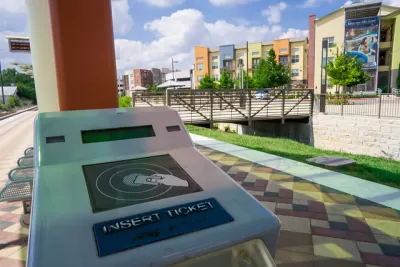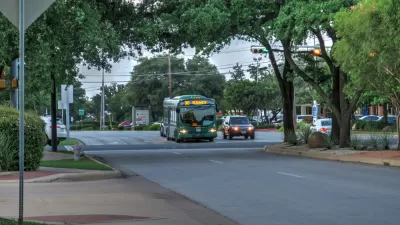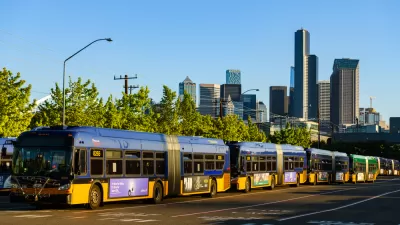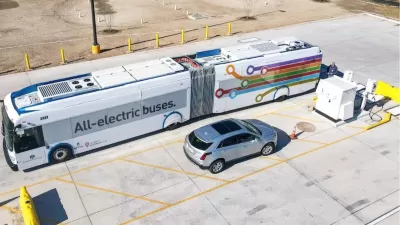Capital Metro is growing a new generation of public transit riders.

Ryan Thornton reports from Austin, where Capital Metro has decided to make public transit free to all children under the age 19.
A Kids Ride Free pilot program this summer was part of a larger effort to attract riders with late-night weekend rail service and free rides for students in grades K-12. When the summer program expired in late September, Capital Metro pushed the expiration date for free student fares back to Dec. 10, with some discussion about adopting the fare structure when the pilot ended. On Wednesday afternoon, by a unanimous vote from the agency’s board of directors, fares for K-12 students and MetroAccess riders under the age of 19 were permanently eliminated on all Capital Metro services.
According to Thornton, Capital Metro added 120,000 new service hours over the summer, but instead of raising fares to cover costs, system officials has decided instead that a new generation of riders is most valuable to the long term viability of the system's ridership.
FULL STORY: Capital Metro votes kids ride free, forever

Study: Maui’s Plan to Convert Vacation Rentals to Long-Term Housing Could Cause Nearly $1 Billion Economic Loss
The plan would reduce visitor accommodation by 25,% resulting in 1,900 jobs lost.

North Texas Transit Leaders Tout Benefits of TOD for Growing Region
At a summit focused on transit-oriented development, policymakers discussed how North Texas’ expanded light rail system can serve as a tool for economic growth.

Why Should We Subsidize Public Transportation?
Many public transit agencies face financial stress due to rising costs, declining fare revenue, and declining subsidies. Transit advocates must provide a strong business case for increasing public transit funding.

How to Make US Trains Faster
Changes to boarding platforms and a switch to electric trains could improve U.S. passenger rail service without the added cost of high-speed rail.

Columbia’s Revitalized ‘Loop’ Is a Hub for Local Entrepreneurs
A focus on small businesses is helping a commercial corridor in Columbia, Missouri thrive.

Invasive Insect Threatens Minnesota’s Ash Forests
The Emerald Ash Borer is a rapidly spreading invasive pest threatening Minnesota’s ash trees, and homeowners are encouraged to plant diverse replacement species, avoid moving ash firewood, and monitor for signs of infestation.
Urban Design for Planners 1: Software Tools
This six-course series explores essential urban design concepts using open source software and equips planners with the tools they need to participate fully in the urban design process.
Planning for Universal Design
Learn the tools for implementing Universal Design in planning regulations.
City of Santa Clarita
Ascent Environmental
Institute for Housing and Urban Development Studies (IHS)
City of Grandview
Harvard GSD Executive Education
Toledo-Lucas County Plan Commissions
Salt Lake City
NYU Wagner Graduate School of Public Service





























